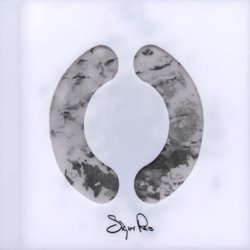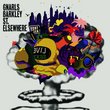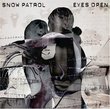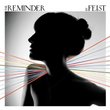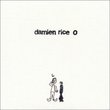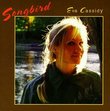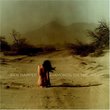| All Artists: Sigur Ros Title: () Members Wishing: 0 Total Copies: 0 Label: Fat Cat Release Date: 10/29/2002 Genres: Alternative Rock, Special Interest, Pop, Rock Styles: Indie & Lo-Fi, Experimental Music, Progressive, Progressive Rock Number of Discs: 1 SwapaCD Credits: 1 UPCs: 008811309121, 5413356491029, 5413356492224, 5413356492279, 600116992239 |
Search - Sigur Ros :: ()
CD DetailsSimilarly Requested CDs
|
Member CD ReviewsReviewed on 1/27/2021... The wierdly titled "Untitled" by Icelandic band Sigur Ros in more of a moody, textual piece. I consider the record to be a beautiful, misunderstood, and ambient work. "Untitled" Post Rock is not for everyone. I consider cut #3 to be the real highlight of ( ). Audiophiles / collectors look for the HDCD (High Definition Compatible Digital) version of this CD release for best sound! 1 of 1 member(s) found this review helpful.
CD ReviewsAn Ethereal, Ambient, Winter-Symphony Samhot | Star Land | 09/15/2003 (5 out of 5 stars) "Bassist Georg Holm has once said in an interview that Sigur Ros weren't a political band, and didn't necessarily have too much to say, other than the fact that they wanted to communicate emotion (subconscious, unconscious) through their instruments. Perhaps this is why the band chose to leave absolutely no credits or lyrics in the sleeve for ( ) (2002).You don't necessarily need written lyrics (or titles) for this intense experience. Just close your eyes, slip into this 72-minute slice of nirvana, and follow whatever feeling states draw to the surface as you listen. Like the icy-looking cover art, this music is the equivalent of a Winter night, and the thoughts and emotions that are conjured with it: cold, beautiful, dreamy, poignant, nocturnal, encircling, haunting and soothing. While the music is "cold," it isn't cold in an unemotional sense, as the album features nothing but overflowing emotion. The soundcapes are mellow, lush and elegant, while the instrumentation is generally used in ambient fashion, which allow certain atmospheres to be created more effectively. And added to this, the tracks are mostly extended, so the album is probably not recommended for listeners who want quick blasts of aggression, or who want short, catchy pop tunes.As far as my personal interpretation of the album, or what it conjures through me? I see it as an album divided into two halves (which can also be equivalent to the two parentheses): The first four tracks comprising the "(" half seem like the equivalent of a lonely Winter night, featuring a long snow-capped landscape, and the stars shining at their brightest above. Winter and snow in general remind me of hope, longing, and the necessity (as opposed to luxury) of love, which are what I'm reminded of when listening to the first four tracks. The music in this half is generally the more lush, elegant, dreamy, nocturnal and mellow. Track 3 happens to be my favorite, as an elegant piano chord is repeated constantly, and used for atmospheric proportions, while the basslines ascend in a particular pattern, and lush orchestration tops it off to create an aura of bliss.The ")" half features soundscapes that remind me of a misty dawn: a somewhat murky sunrise. While the first half seemed generally more nocturnal, there seems to be a diurnal (morning) presence on the second half: night is calm, day is active. Piano was the dominant instrument in the first half, while the second one hears the guitar dominating. This half tends to get more tense, aggressive and somewhat restless in atmosphere, and also features guitar feedback/distortion not heard in the first. Track 7 sees vocalist Jonsi using a pitch in his voice that was not heard at all in the first half. This album is so dear to my heart for it's ethereal, calming, encircling, evocative and emotional nature. Atmospheric music for escapism, reading, relaxing, lovemaking and possible other pastimes. For best results, listen at nighttime, turn down all of the lights, and light up a few candles. Remember to relax, close your eyes, and let the music take you where it may. Enjoy.By the way, here are the supposed songtitles that weren't listed in the sleeve:1. Vaka 2. Fyrsta 3. Samskeyti 4. Njósnavélin 5. Alafoss 6. E-bow 7. Dauðalagið 8. Popplagið" Untitled as the Music Speaks For Itself mark | South Dakota | 11/24/2002 (5 out of 5 stars) "Following their mind-blowing worldwide juggernaut of a record in Agaetis Byrjun, Iceland's Sigur Ros had really no place to go but down. Their second album gained them worldwide acclaim and this record justly was one of the most anticipated of the whole year. '( ),' their major label debut, against all odds, has possibly matched the brilliance of it's predecessor and has expanded the sound of the band into new, even more interesting territories.'Agaetis Byrjun' was filled with bombastic string arrangements that soared and gave the songs real huge dimensions. This record is amazingly different, in a kind of way I personally thought Sigur Ros wouldn't venture. They've stripped down their sound, but at the same time drawn it into a tight sound that seems just as natural as their previous airy soundscapes. The new compactness relies on the intense percussion of their drummer and then the songs are built off that extremely strong foundation. All the familiar elements of the band are here, but used in new ways. Jonsi's otherworldly androgynous vocals return as does his "hopelandish" (his own self created language) lyrics, that aren't meant to have any literal meaning, but act as another instrument in the sound. When couple with his guitar playing with a bow, it can't be beat. The record comes with no real title, just usually referred to by the apostrophe shaped cut outs on the albums slip cover. The songs, averaging about 9 minutes, are also untitled. Critics will like to rag on these as pretensions, but it couldn't be more untrue. Sigur Ros like to create, as they themselves call it, a fully interactive music. The listener is able to free their mind of any kind of pre-conceived concept and create their own meanings and lyrics. In fact, the album booklet consists only of blank pages, meant to be used by the individual to write in their own lyrical, or even visual, interpretations. A one word title if any would have been most appropriate because the tracks flow so well into each other it's not worth even trying to find where one ends and another begins. The album's contraction is one of the best parts as first half is much warmer and much of it is piano based (tracks 1 &3) and tender feeling (track 4) ; after a short silence separating the halves, the second proves to be menacing with aggressive drum beats (track 6)and even some straightforward guitar work that all climax at the end (track 8). The album at it's most brilliant (tracks 1,4, 6, & 8) is nearly unmatched today and at it's worst (track 5) it's inspirational."
|

